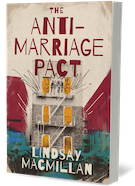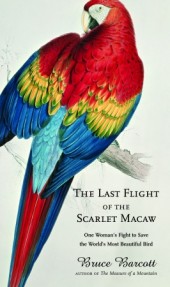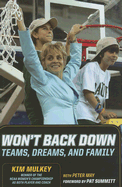Congratulations to Books Inc., whose Palo Alto, Calif., store has moved and is reopening today in the Town & Country Village shopping center, a 56-year-old shopping mall that, under new owners, is being renovated and drawing a mix of retailers, including both locally-owned and national stores. Books Inc. had long had a 4,000-sq.-ft. store in the Stanford Shopping Center, which has begun to emphasize chains and is about a half a mile from Town & Country. Town & Country is on the main intersection of El Camino Real at the entrance to Stanford University and across from Palo Alto High School.
Books Inc.'s new store is about the same size as the old one but has "a better footprint and fantastic location," according to Michael Tucker, president of Books Inc., which has 10 locations in California. "We've gotten such a warm reception from the community before we've even opened our doors that the staff is really excited."
---
Bookselling This Week profiles Craig Morgan and Clear Creek Books, which he opened in Golden, Colo., on December 6. The 2,000-sq.-ft. store stocks used and new titles and has extensive children's and local sections. Clear Creek also hosts many clubs, including a knitting group and the Fortnighters, a 120-year-old book club.
The store is located at 1200 Washington Ave., Golden, Colo. 80401.
---
This coming fall, Barnes & Noble plans to open a store in Des Peres, Mo., near St. Louis. The new B&N will be located in the West County Center at Manchester Road and I-270.
---
The late David Bell, who owned Magus Books, Seattle, Wash., left $700,000 to the University of Washington Libraries. The Post-Intelligencer
reported that "UW library officials knew Bell left something to the
libraries, but expected the amount to be smaller--about $100,000. They
learned of the total amount earlier this month."
The endowment
will be used for the preservation and conservation of books that date
to the 15th century. Bell sold Magus Books to Chris Weimer and Hanna
McElroy four years ago.
---
Doris Lessing formally received her Nobel prize for literature Wednesday night, the Guardian reported. Lessing, 88, was not able to travel to Sweden for the Nobel presentation due to ill health.
"Thank
you does not seem enough when you've won the best of them all," she
said. "It is astonishing and amazing. I would like to say that there
isn't anywhere to go from here. . . . I could get a pat on the head
from the Pope."
She also said he could hear her father saying: "You're getting above yourself my girl and I don't like it."
---
At the Chronicle Review, Gina Barreca explores why independent bookstores matter: "Without independent bookstores, those magnificent places which purchase books not by weight but by volume, there would be no great new authors to discover because no publisher would take a risk by publishing anything less than an instant bestseller. . . . Don't think of independent bookstores as being out of your way--think of them as your destination."
---
A federal judge yesterday dismissed the lawsuit filed last year by five unhappy authors against Eagle Publishing, the parent company of conservative book publisher Regnery Publishing, Regnery said late yesterday.
Last fall (Shelf Awareness, November 6, 2007), the five plaintiffs, who included Jerome R. Corsi, co-author of Unfit for Command: Swift Boat Veterans Speak Out Against John Kerry, and Richard Miniter, author of Dereliction of Duty: The Eyewitness Account of How Bill Clinton Compromised America's National Security, charged that by selling or giving away copies of their books to book clubs, newsletters and other organizations owned by Eagle, Eagle was intentionally engaging in a "fraudulent, deceptively concealed and self-dealing scheme to divert book sales away from retail outlets" and avoid standard royalty payments.
Eagle said the group was led by Miniter, "who acted in apparent retribution against Regnery. Regnery is pursuing Miniter via arbitration after Miniter walked out in the middle of a two-book deal. Miniter had signed a two-book contract with Regnery, but delivered only one book before signing a new contract with Simon & Schuster for the same book he had already sold to Regnery. Ironically, S&S has reportedly now cancelled their contract with Miniter for non-delivery."






SHELFAWARENESS.0213.S4.DIFFICULTTOPICSWEBINAR.gif)





SHELFAWARENESS.0213.T3.DIFFICULTTOPICSWEBINAR.gif)


 Bruce Barcott, author of The Last Flight of the Scarlet Macaw: One Woman's Fight to Save the World's Most Beautiful Bird (Random House, February 2008), writes regularly on environmental issues and outdoor adventure for Outside and the New York Times Magazine. His award-winning book, The Measure of a Mountain: Beauty and Terror on Mount Rainier, was recently reissued in a 10th anniversary edition. Although he and his family call Seattle home, they're temporarily camped out in the mountains outside Boulder, Colo., while Bruce writes and teaches at the University of Colorado.
Bruce Barcott, author of The Last Flight of the Scarlet Macaw: One Woman's Fight to Save the World's Most Beautiful Bird (Random House, February 2008), writes regularly on environmental issues and outdoor adventure for Outside and the New York Times Magazine. His award-winning book, The Measure of a Mountain: Beauty and Terror on Mount Rainier, was recently reissued in a 10th anniversary edition. Although he and his family call Seattle home, they're temporarily camped out in the mountains outside Boulder, Colo., while Bruce writes and teaches at the University of Colorado.  Imagine a typical character in a John Mellencamp song, and you have a pretty good picture of James Scott, the protagonist of Adam Pitluk's latest work, focusing on the Great Midwestern Flood of 1993. Having spent nine years and considerable energy investigating Scott's bizarre role in that catastrophe, it's unfortunate that Pitluk, a journalist of evident diligence and skill, didn't have a more interesting or sympathetic protagonist on which to base his workmanlike account.
Imagine a typical character in a John Mellencamp song, and you have a pretty good picture of James Scott, the protagonist of Adam Pitluk's latest work, focusing on the Great Midwestern Flood of 1993. Having spent nine years and considerable energy investigating Scott's bizarre role in that catastrophe, it's unfortunate that Pitluk, a journalist of evident diligence and skill, didn't have a more interesting or sympathetic protagonist on which to base his workmanlike account.